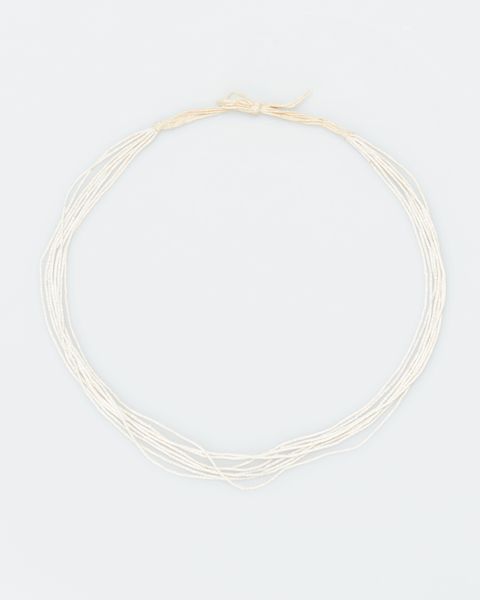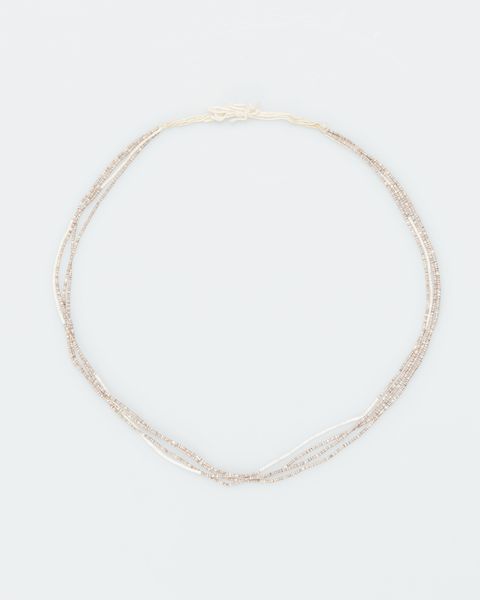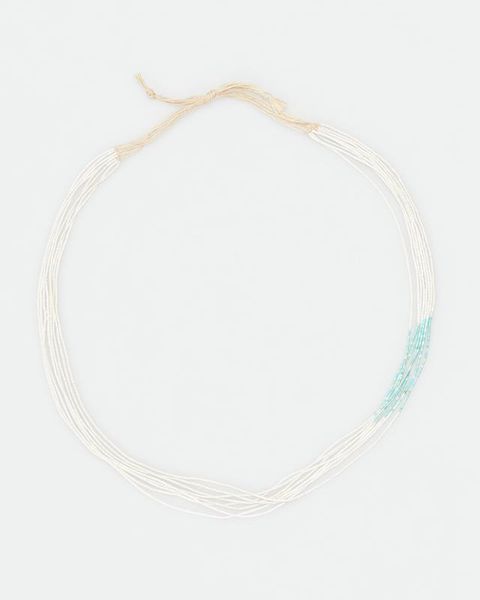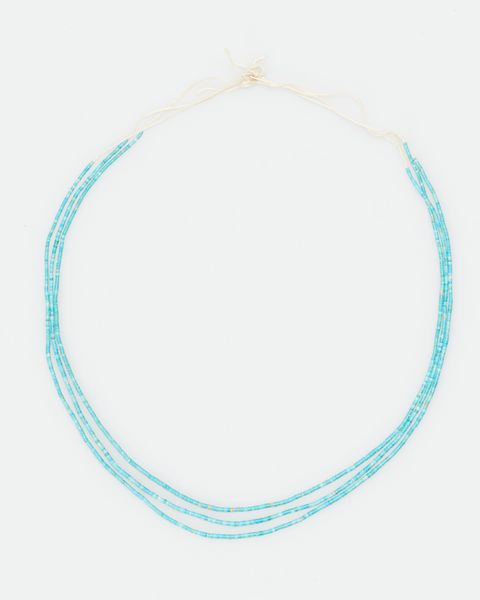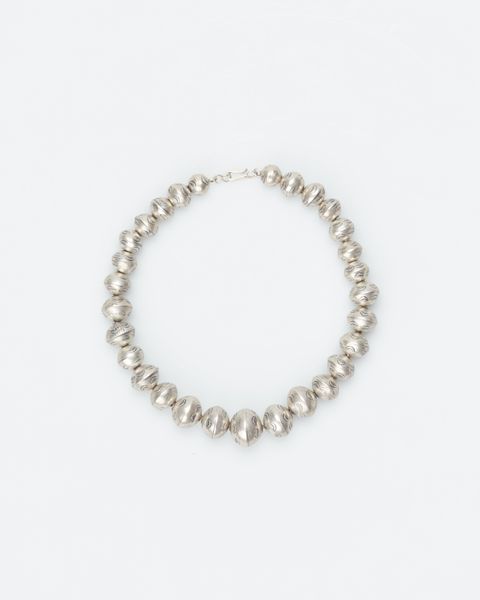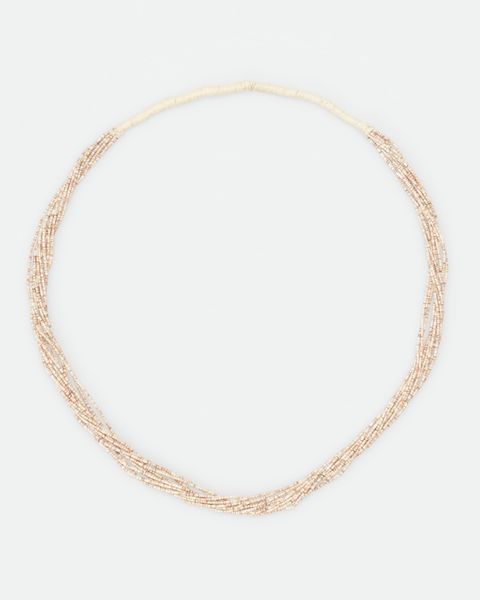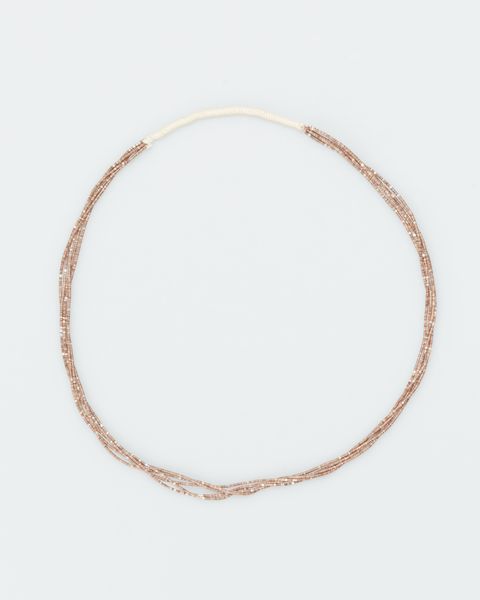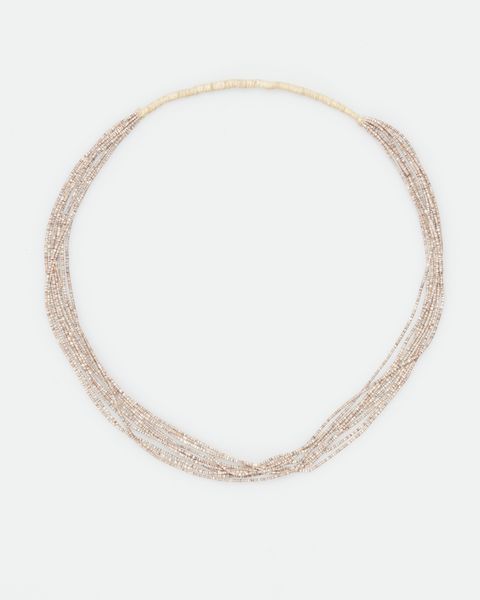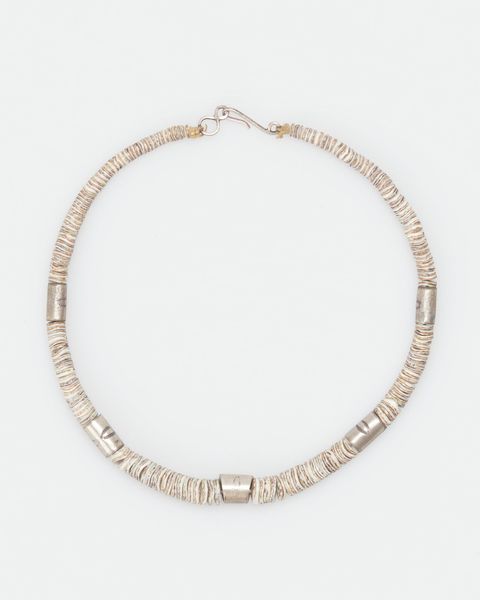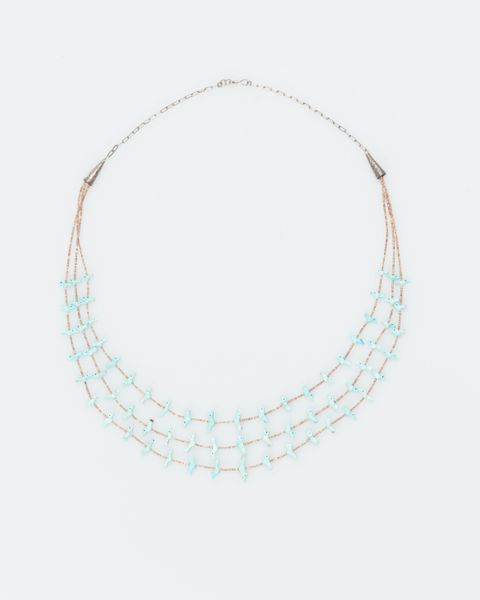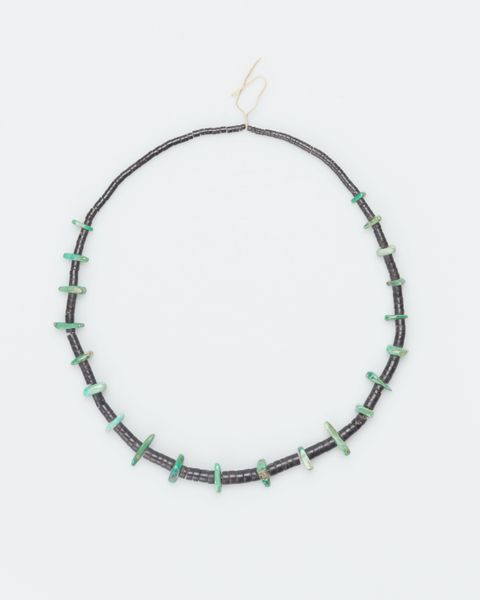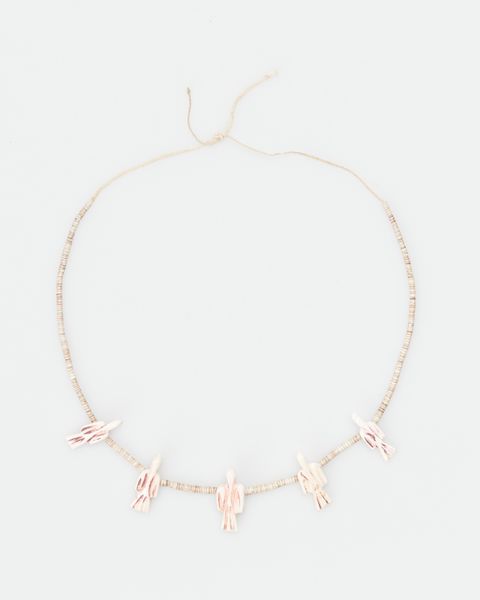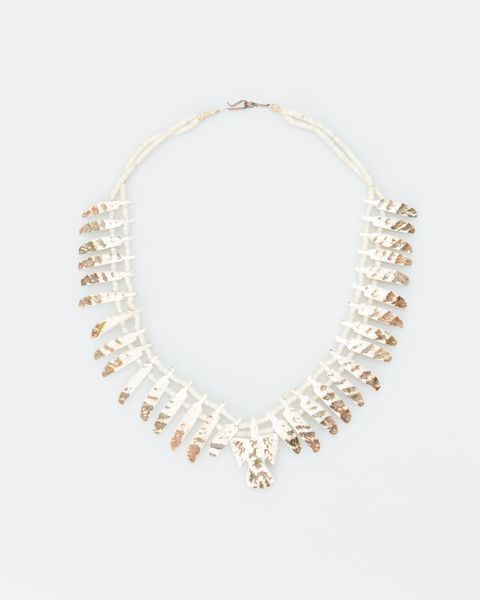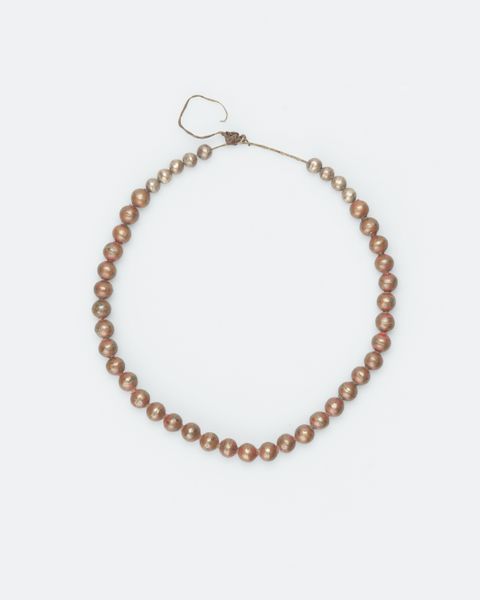
fibre-art, textile
#
fibre-art
#
textile
#
form
#
line
#
decorative-art
Copyright: No Known Copyright
Editor: We're looking at a piece called "Necklace," created around the 20th century, now held at the Minneapolis Institute of Art. It's crafted from fibre-art and textile. The simplicity is striking; it almost fades into the background. What draws your attention to this seemingly simple necklace? Curator: Its very simplicity, I think. Notice the line; the artist has created a continuous, unbroken loop, not once, but four times, with subtle variations in the tension of each strand. It is this repetition and variation that establishes rhythm, creating a pleasing visual cadence. Do you observe how the artist has exploited the innate characteristics of the material itself to generate form? Editor: Yes, the way the threads gently curve creates a delicate form in and of itself. I guess I wouldn't normally think of a necklace in terms of pure form, but the artist seems focused on exploring the line and shape. Curator: Precisely! It transcends mere functionality. The emphasis is on the relationship between the lines, the space they define, and the texture of the material. We might consider the philosophical implications of that circularity too; without beginning, without end. What do you make of its understated presentation? Editor: I hadn't considered the philosophical part, I see your point, thinking about the simplicity, focusing just on shape… Curator: Think about the visual dialogue, what did you just notice? Editor: Now I'm struck by how such a basic construction – just simple threads - is elevated to a sophisticated object, due to composition alone. Thanks to our analysis, I learned about rhythm in this minimal artwork and that it could relate to philosophy! Curator: Indeed. Formalism provides the language to discuss artistic components of an object like "Necklace". A fulfilling conversation.
Comments
No comments
Be the first to comment and join the conversation on the ultimate creative platform.
